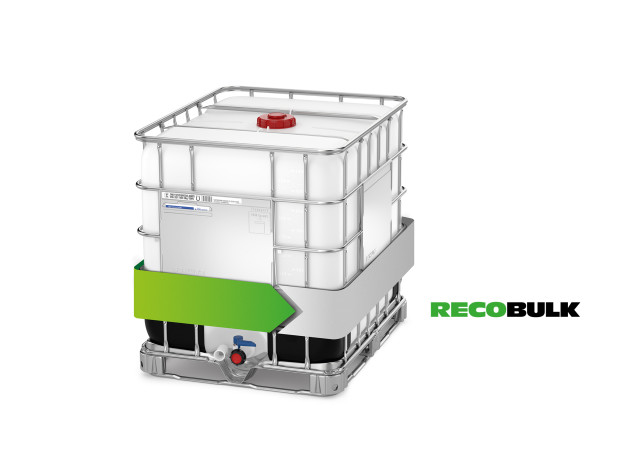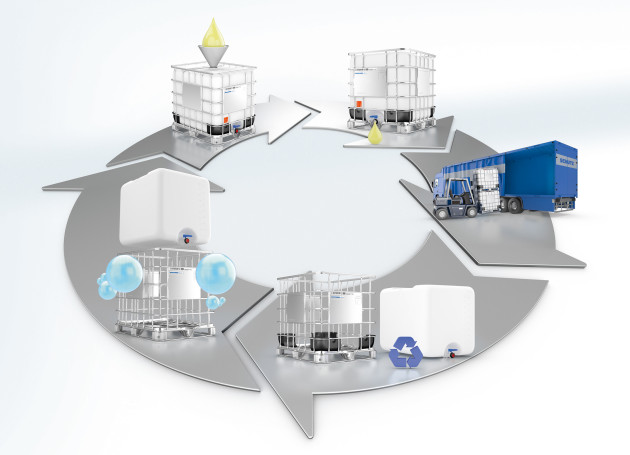Packaging systems company Schütz has launched a new range of retrieved Ecobulk containers.
Called Recobulk, they have the same standard specifications as the Ecobulk, making them 100 per cent compatible and are just as safe, according to Schütz.
The Ecobulk containers are reconditioned through the fitting of a new inner bottle, and all other components such as screw caps, outlet valves, and label plates, are replaced with new original components.
The robust steel grid and the bottom plate are repaired if necessary and reused.
The plastic components that have been removed are internally recycled and the material is fully reused to make new packaging components such as plastic pallets.
The new brand name was devised in order to make the link between originality and quality visible on reconditioned Schütz IBCs.
Both packaging versions now have 'Ecobulk' and 'Recobulk' embossed on the label plate to show their quality and recyclability status.
The company says the production of each new Recobulk saves around 100 kilograms of CO2 emissions compared with a new IBC.
Schütz packaging is collected globally as part of its sustainability philosophy and fully reconditioned prior to re-use.
With the Ecobulk, Schütz created a frequently used IBC system with a modular design.
The Ecobulk can be configured to suit all needs and requirements such as providing special protection for highly permeable filling products or meeting high hygiene standards for foods.
Schütz IBCs offer complete recyclability, and its eco-friendly recycling system is a producer-operated network which collects and reconditions empty IBCs anywhere in the world.







